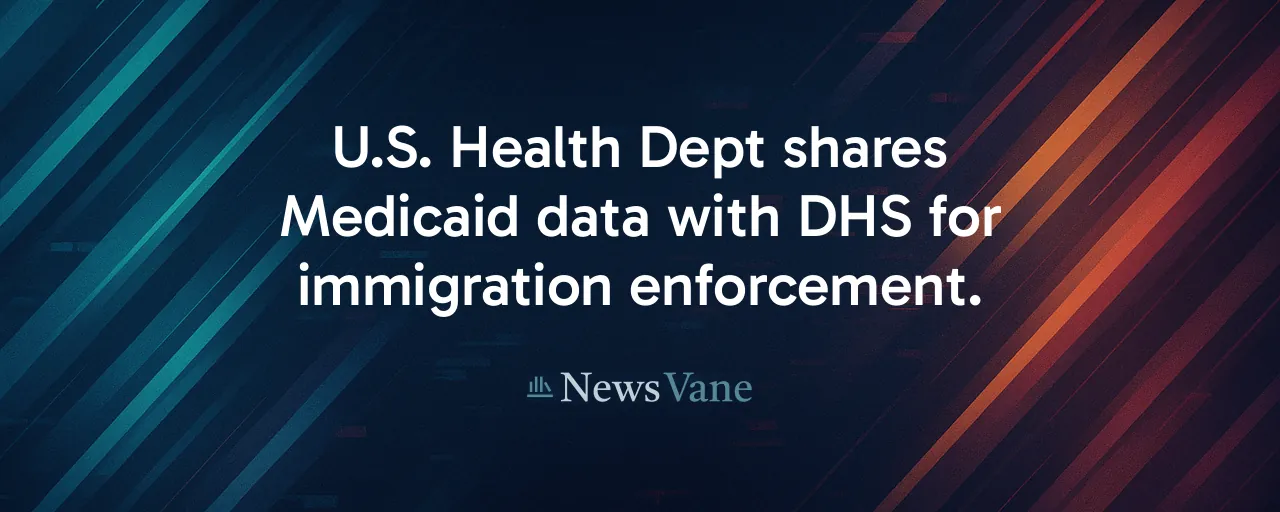A Data Move That Shook Trust
In June 2025, the U.S. Department of Health and Human Services sent personal details of Medicaid enrollees to the Department of Homeland Security. The transfer included names, addresses, and immigration statuses of millions who rely on Medicaid for critical care. This decision has sparked intense discussions about privacy rights, healthcare access, and the boundaries of federal authority.
Reported by the Associated Press, the move supports immigration enforcement by identifying individuals for deportation. Federal officials defend it as a way to ensure benefits reach only those legally eligible. Yet state leaders and privacy advocates argue it threatens trust in health programs, potentially discouraging people from seeking care. The conflict reveals deep divides over how personal information should be used.
Understanding Medicaid's Data Role
Medicaid, called Medi-Cal in California, delivers healthcare to millions, covering low-income families, seniors, and people with disabilities. Federal law ensures emergency Medicaid funds urgent care, such as childbirth, for all eligible residents, regardless of immigration status. States share enrollee information with the Centers for Medicare & Medicaid Services to manage the program and meet federal funding requirements.
Traditionally, this data stayed within CMS, protected by the Privacy Act of 1974 and the Social Security Act to maintain confidentiality. The 2025 transfer to DHS changed that. Internal CMS documents show career staff warned that using health data for immigration enforcement might violate these laws. Despite objections, political leaders authorized the transfer, citing fiscal and security priorities.
Balancing Privacy and Enforcement
Those supporting the data sharing, including some federal officials, view it as essential to prevent fraud and protect public funds. During a March 2025 congressional hearing, a former immigration official stressed the need for access to health and tax records to track unauthorized immigrants. Proponents highlight a 2025 court decision upholding a similar IRS-DHS data agreement, arguing it strengthens national security.
State officials and civil liberties advocates counter that the transfer undermines public trust. California's governor emphasized the state's commitment to safeguarding personal information, rooted in its constitution. Legal experts question whether repurposing health data for deportations complies with laws limiting data use to its original intent. Many fear eligible families will avoid Medicaid, worried about immigration consequences.
Health Systems Under Pressure
The health fallout is already evident. Studies link immigration enforcement to reduced healthcare access. A 2025 survey by Physicians for Human Rights found clinicians noting delayed care and worsening patient conditions due to fears of deportation. After a January 2025 policy change permitted enforcement actions in hospitals, some clinics reported sharp drops in patient visits, straining emergency services.
The impact extends beyond immigrant communities. With nearly one in five U.S. healthcare workers born abroad, increased scrutiny could disrupt staffing. States worry declining Medicaid enrollment will weaken public health infrastructure, particularly in diverse regions. These concerns highlight the challenge of aligning enforcement policies with the need for robust healthcare systems.
Navigating the Future
This controversy underscores a broader struggle over personal data in an interconnected world. States like California are pursuing legal protections for their residents, while federal agencies advocate for unified data systems to enhance enforcement. Both sides recognize the importance of public confidence but disagree on how to preserve it.
Lawsuits challenging the data transfer are moving forward, alleging violations of federal law. Civil liberties groups and immigrant-rights coalitions suggest solutions like stricter privacy rules or requiring judicial oversight for data sharing. The resolution will influence how states and the federal government balance privacy, health, and immigration priorities in the coming years.
The path ahead remains uncertain. How will communities respond to these shifts? Can faith in public programs be rebuilt? As these questions linger, the effects on healthcare and privacy will demand ongoing scrutiny from policymakers and the public.
